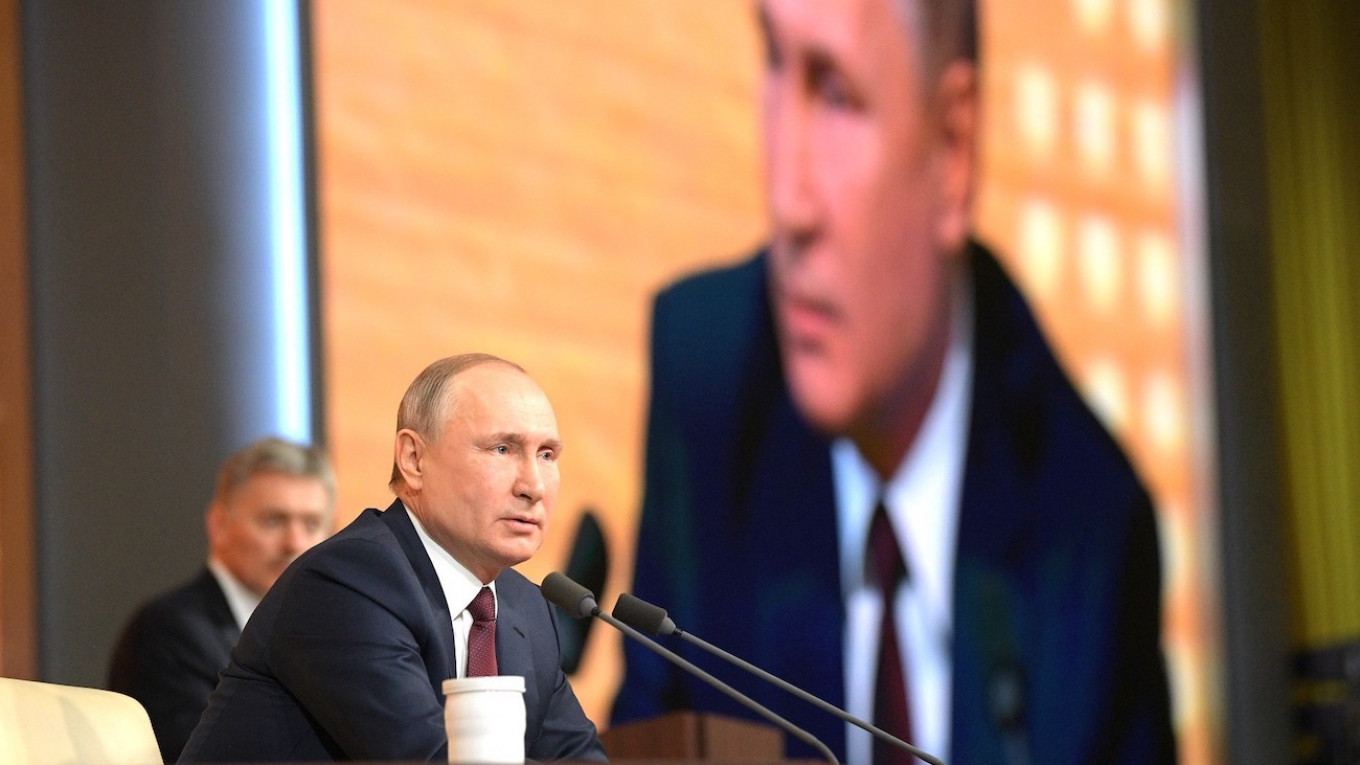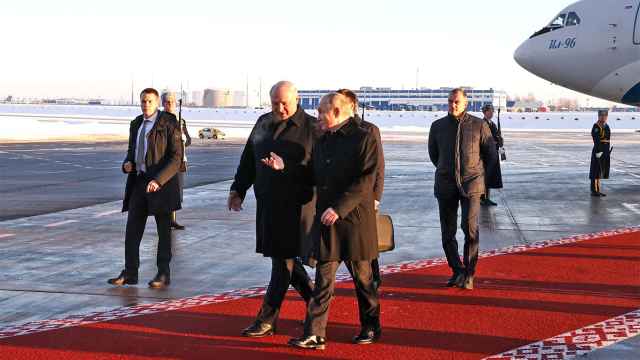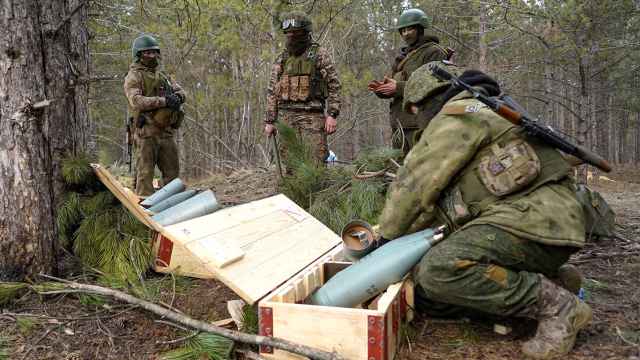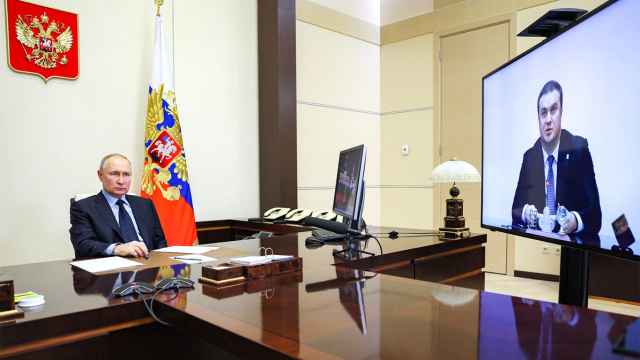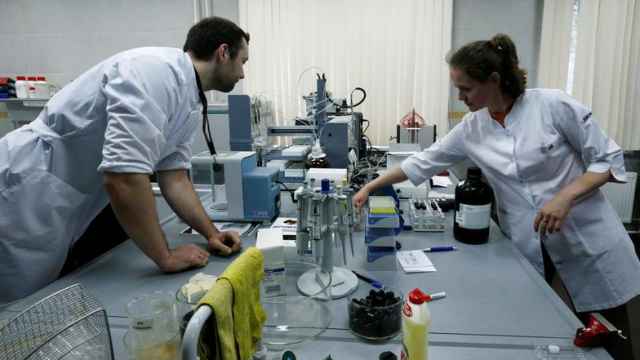The story of Alexei Navalny’s poisoning has created a new divide between Russia and the world. The government of Germany, where the Russian opposition politician is recovering, maintains that a banned nerve agent was used to poison him. Some Russian officials have denied Navalny was poisoned, some have implied that he was poisoned in Germany, and still others suggest that the poisoning story was a Western hoax.
According to French media, Russian President Vladimir Putin, in a phone conversation with his French counterpart Emmanuel Macron, even suggested that Navalny might have poisoned himself in an attempt to discredit Russia.
The Kremlin seems to be improvising on the fly, apparently thinking that the story will go away all by itself. Chemical weapons specialists from Germany as well as experts from France and Sweden confirmed that the substance used to attack Navalny belonged to the Novichok family, a group of highly toxic agents originally developed in the Soviet Union in the 1970s and 1980s. Russia’s officials, meanwhile, may tie themselves into knots and constantly change their story but they are consistent in one respect.
Grammatically, the Kremlin’s story is always told in the passive voice: this allows for the conspicuous absence of an actor, a perpetrator. Officials rarely deny that things may be “done” to people but they are always fuzzy about the doer.
Moscow called the 2018 poisoning of the former double agent Sergei Skripal and his daughter a “provocation,” even though British authorities had identified and named Russian spies that Scotland Yard said were responsible for the attack. The Kremlin spokesman said back then that Russia had no knowledge of who the suspects were. Later, when interviewed by the RT television channel, the two alleged poisoners claimed that they were tourists who had gone to Salisbury to take a look at the city’s cathedral and admire its tall, impressive spire.
Four years before that incident, in 2014, the Russian authorities said that Malaysia Airlines Flight 17, a passenger jet on route from Amsterdam to Kuala Lumpur, had merely “crashed.” The crash happened in eastern Ukraine amid the hostilities between Russia-supported rebels and the Ukrainian military.
A Dutch-led investigating team concluded later that a surface-to-air missile had hit the plane and caused the crash.
After sifting through hundreds of thousands of documents and questioning hundreds of witnesses, the analysts and detectives identified the exact missile launcher, its position at the moment of the firing, and the fact that the equipment had been transported from Russia to the rebel-controlled part of Ukraine and then back to Russia after the downing.
Moscow, however, volunteered a number of alternative explanations for the crash of MH17, including a bomb on board, Ukrainian fighter jets, or Ukrainian missile launchers. When the investigative team dismissed all of these claims, the Kremlin eventually ended up saying, in Vladimir Putin’s wording, that Russia had no reasons to “trust the results of this investigation.”
With Alexei Navalny’s poisoning, Moscow is replaying its deniability game but its claims somehow get sillier each time. A doctor from Omsk, the Siberian city where Navalny was treated immediately after the poisoning, said that the politician’s illness could have been caused by a strict diet. The editor-in-chief of RT, Russia’s state-funded television network broadcasting in foreign languages, said a lack of sugar might have sent Navalny into a coma. Alexander Lukashenko, the embattled president of Belarus, has presented Moscow with an “intercepted” conversation between Berlin and Warsaw that, Lukashenko said, was proof that the poisoning was a Western hoax against Russia.
The conversation — in English, complete with a Russian-language voiceover — sounded like a clip from an old Cold War movie. Russia is supporting Lukashenko’s campaign to stay in power despite nationwide protests in Belarus, and for that reason the Kremlin apparently decided to keep a straight face and not to dismiss Lukashenko’s clumsy assistance.
Moscow’s media figures and politicians are never shy to air old and trusted denials. “Killing a very public critic would not be advantageous for Putin,” is one such cliché denial. “The ‘blogger’ in question was too lightweight a figure for Putin to even think about,” is another. A Western provocation adage is also popular. “When Alexei Navalny was leaving the Russian territory no toxic substances were found in his body,” the head of Russia’s Foreign Intelligence Service, Sergei Naryshkin, told reporters on Tuesday. “In this respect we have lots of questions to ask the German side.”
For Russia’s official spokespersons, the reason why Navalny could have been poisoned in Germany is readily available. “Everything that is going on around Navalny has nothing to do with Novichok or the opposition, or the regime. . . . It has everything to do with one thing only, it’s Nord Stream 2,” the head of the Russian Agency for Ties With Compatriots Living Abroad and International Humanitarian Cooperation Yevgeny Primakov wrote on Facebook. German Chancellor Angela Merkel has indicated that the German government might indeed consider sealing off the nearly completed Nord Stream 2 gas pipeline.
Yet Germany has refrained from taking such measures before. Consistent with German politicians’ long-standing belief in economic interdependence as a basis for peaceful coexistence and political change, Chancellor Merkel has sought to decouple various Moscow-related crises from business dealings with Russia.
It is because of this political attitude — and vested business interests as well — that Germany did not stop Nord Stream or, later, Nord Stream 2 after the annexation of Crimea, the war in Ukraine, the downing of MH17, or the Skripal poisoning.
It is not just in international relations that the Kremlin evades responsibility for publicly significant events. The stories presented domestically are often crude and are told in the passive voice, the essential grammatical tool of evading responsibility.
This strategic irresponsibility is pervasive. Even parts of Russia’s history, for example the story of the Stalinist past, are told grammatically, in the passive.
Under Putin, Russia’s official position — evident in school textbooks and in government-run media—has been to recognize the suffering of the victims but to be vague about those who sent the “kulaks” to camps and executed the innocent. People “were” executed, “sent” to camps, or jailed — no one disputes that in Russia, it is the perpetrators who are kept out of the picture.
Being exposed to this sort of language day in and day out cannot but entail consequences. No one in Russia is deceived by the evasion of responsibility but the constant war on the truth takes its toll. If it is the state that is busy covering up crimes, then silence and lies become part of the public sphere. Irresponsible speech “poisons” the relationship between the state and society.
Exposed to constant public lies, people stop taking public statements seriously and do not believe that they can affect change through public politics. The toxic cynicism that is so common in Russia’s public life is not, of course, a feature of the Russian culture. Nor is the passive voice somehow inherent in the Russian language. Russia needs a deep detoxification of all spheres of public life, from its political system to its political language.
This article was first published by the Wilson Center.
A Message from The Moscow Times:
Dear readers,
We are facing unprecedented challenges. Russia's Prosecutor General's Office has designated The Moscow Times as an "undesirable" organization, criminalizing our work and putting our staff at risk of prosecution. This follows our earlier unjust labeling as a "foreign agent."
These actions are direct attempts to silence independent journalism in Russia. The authorities claim our work "discredits the decisions of the Russian leadership." We see things differently: we strive to provide accurate, unbiased reporting on Russia.
We, the journalists of The Moscow Times, refuse to be silenced. But to continue our work, we need your help.
Your support, no matter how small, makes a world of difference. If you can, please support us monthly starting from just $2. It's quick to set up, and every contribution makes a significant impact.
By supporting The Moscow Times, you're defending open, independent journalism in the face of repression. Thank you for standing with us.
Remind me later.



